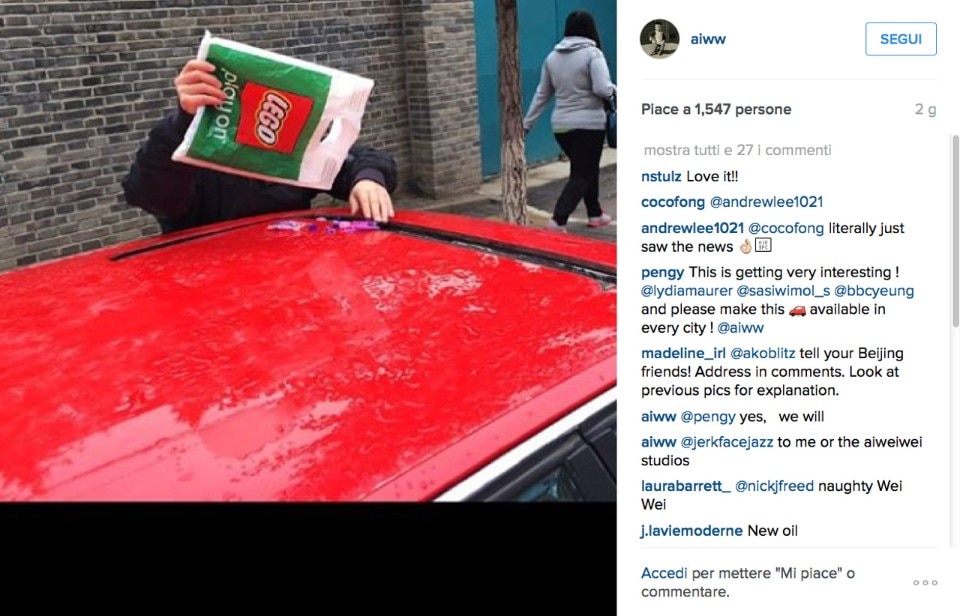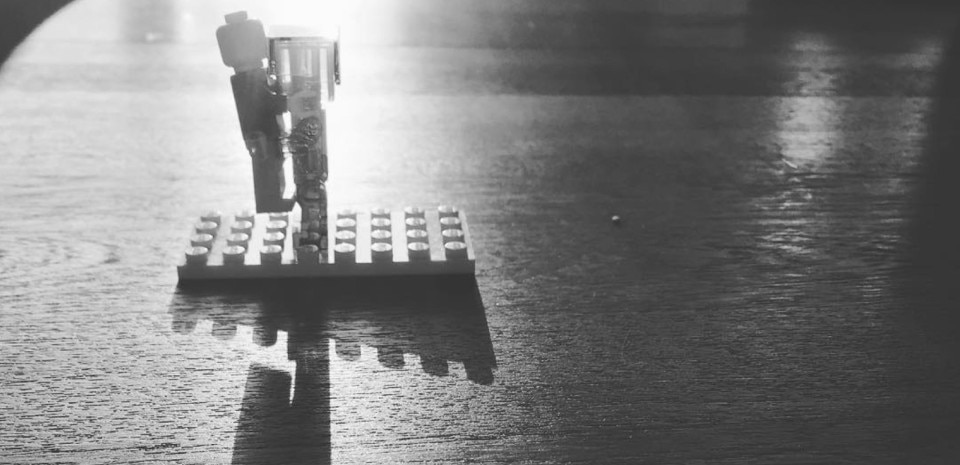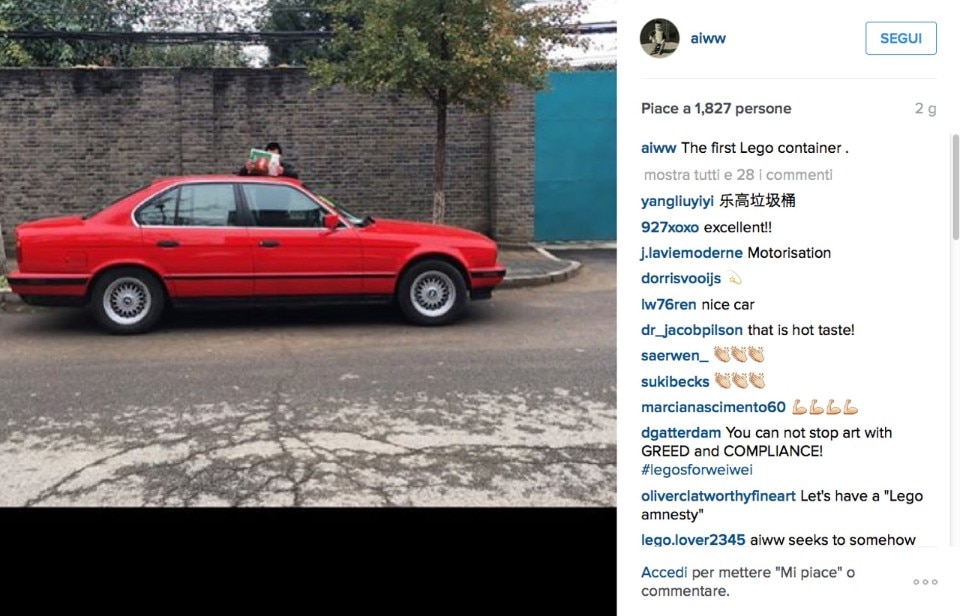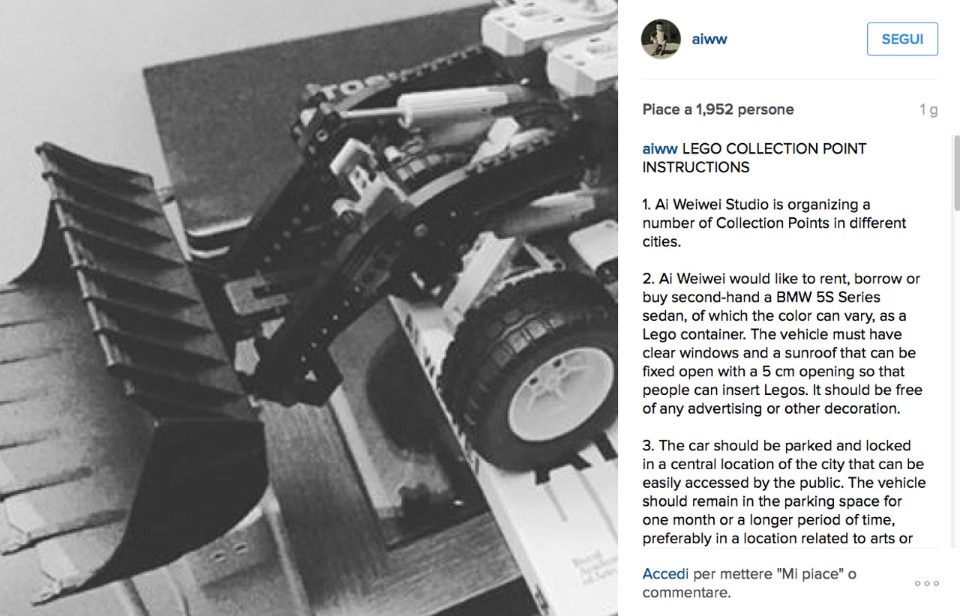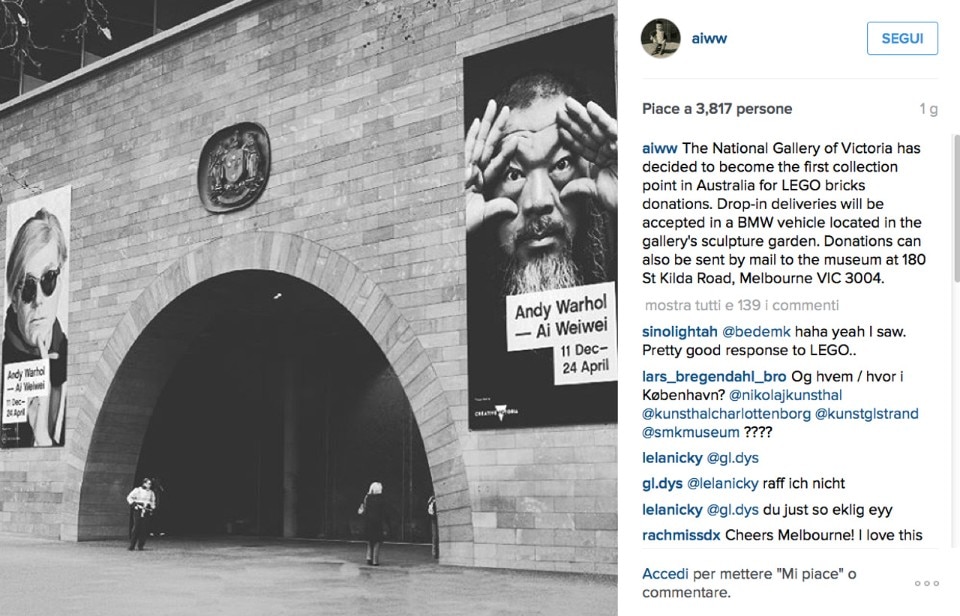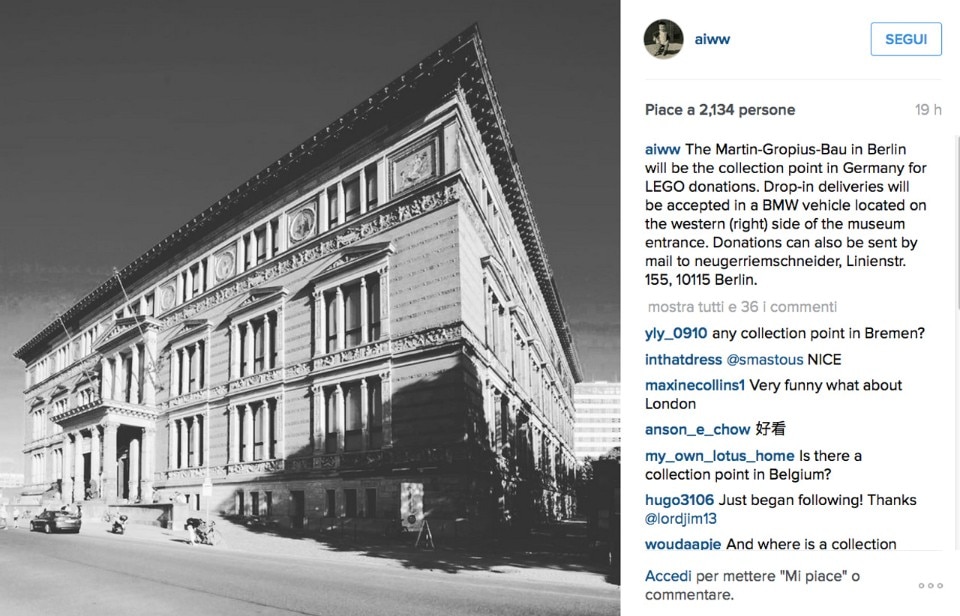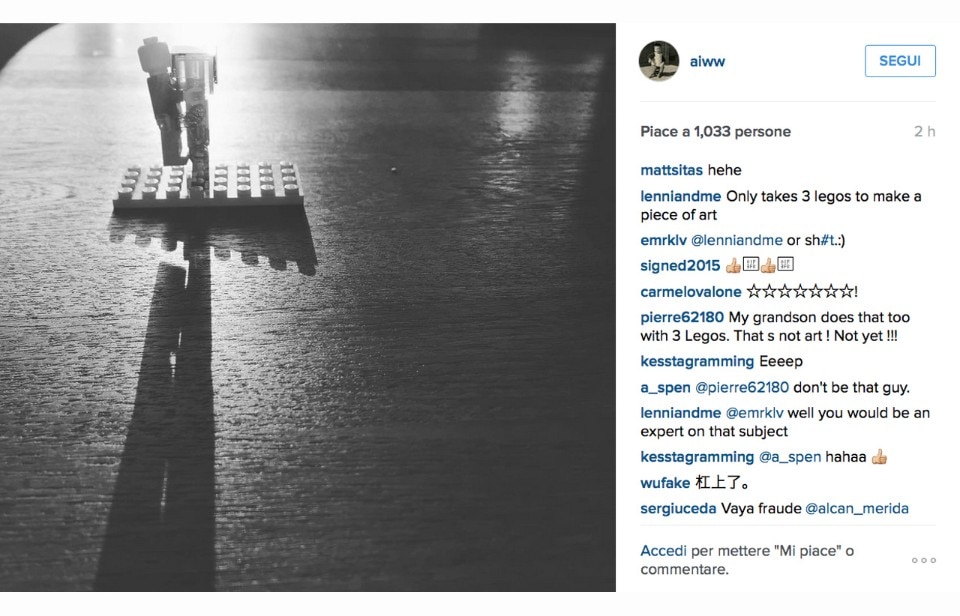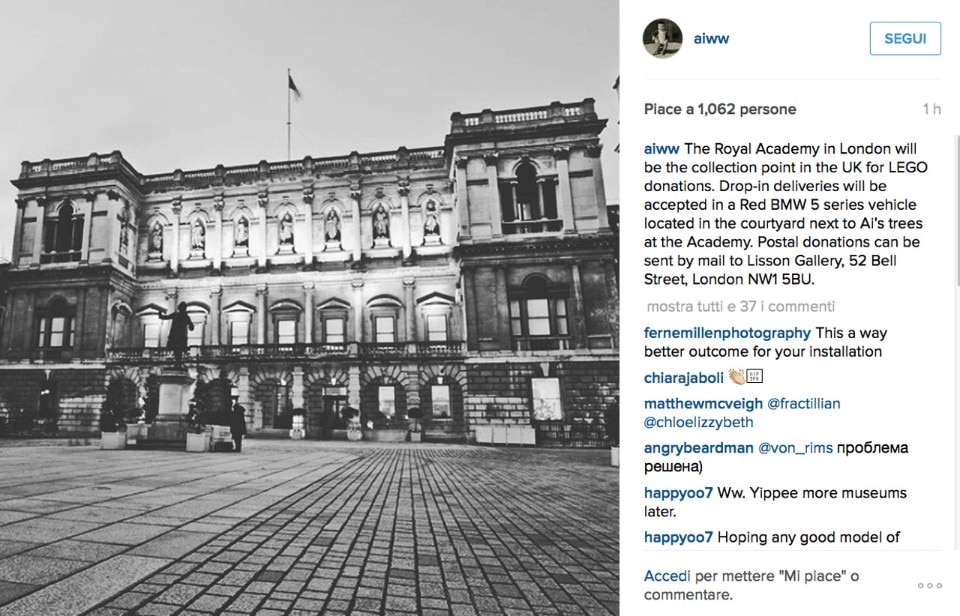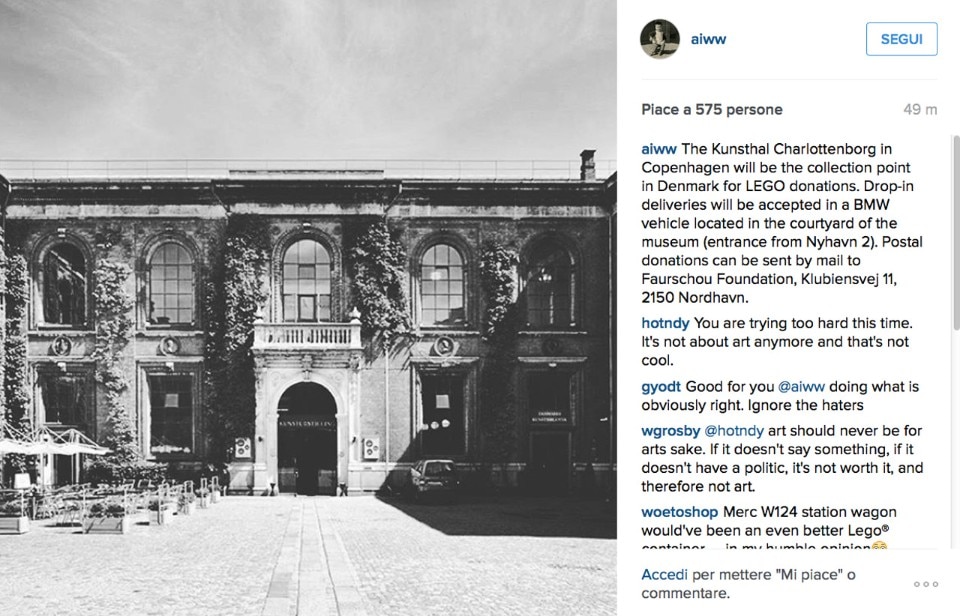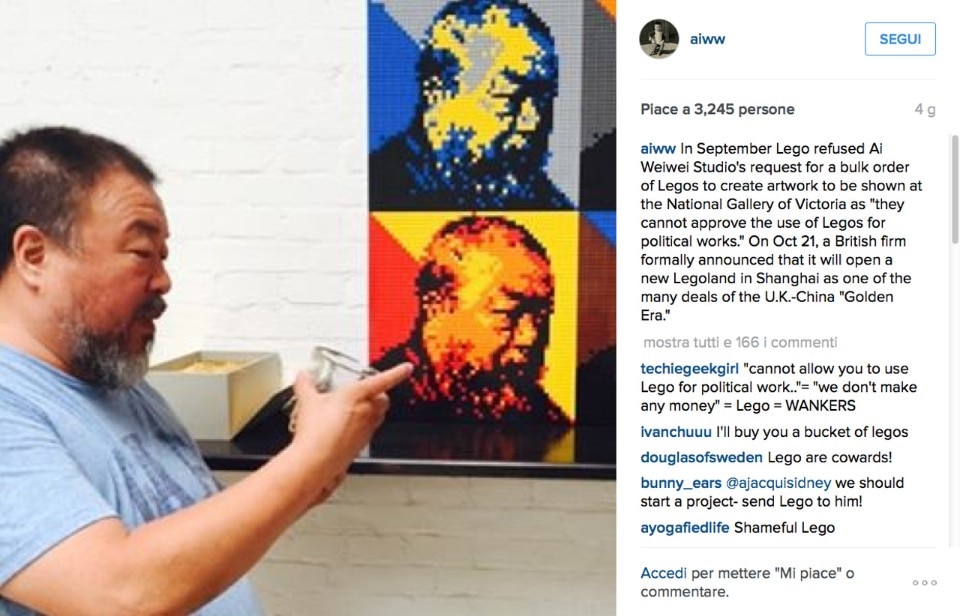
In an email sent to the Guardian, the Danish company confirmed the order had been rejected on political grounds but said the principle “is not new”.
Lego spokesman Roar Rude Trangbæk said: “Any individual person can naturally purchase or get access to Lego bricks in other ways to create their Lego projects if they desire to do so, but as a company, we choose to refrain from engaging in these activities – through for example bulk purchase.”
“In cases where we receive requests for donations or support for projects – such as the possibility of purchasing Lego bricks in large quantities – where we are made aware that there is a political context, we therefore kindly decline support.”
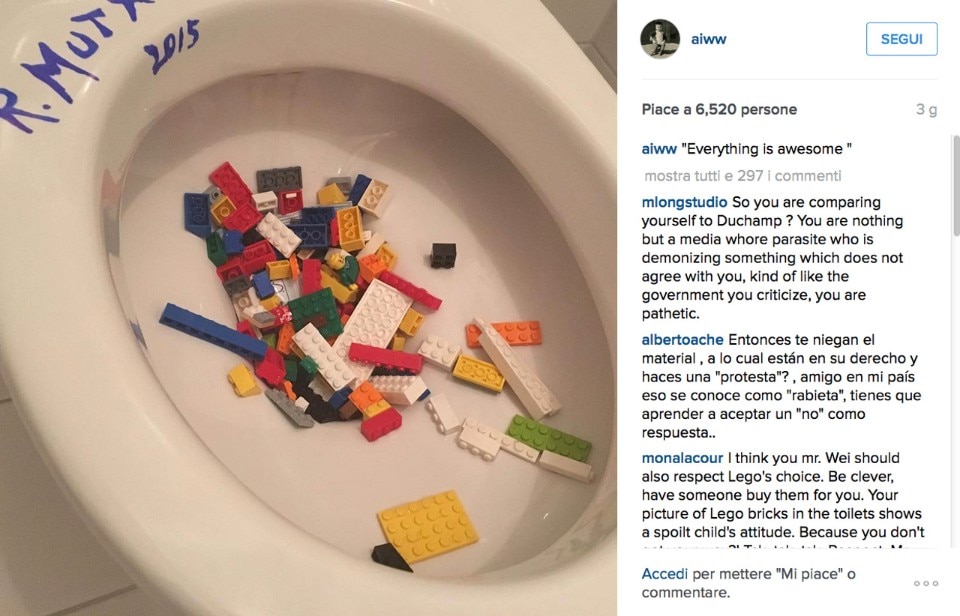
In response to Lego’s refusal and the overwhelming public response, Ai Weiwei has now decided to make a new work to defend freedom of speech and “political art”, strating with the creation of Lego collection points in different cities.
Installing a car in its garden, the National Gallery of Victoria has decided to become the first collection point in Australia for Lego bricks donations, followed by the Martin-Gropius-Bau in Berlin, The Royal Academy in London and the The Kunsthal Charlottenborg in Copenhagen.
The history has had a great echo in the media, with positions in favor or against the Chinese artist. Among these particularly interesting is the position of Jonathan Jones, who, on the Guardian reflects on the difference between an act of censorship and discrimination and what he claims to be “a clumsy PR move”.
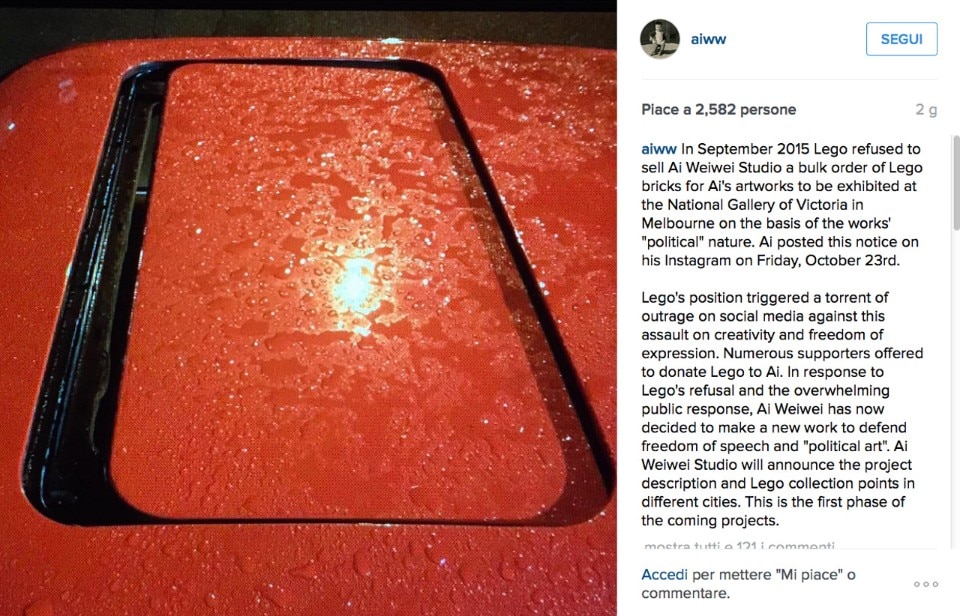
The case has been also the occasion for a reflection about the internet’s power: “The internet is like a modern church. You go and complain to a priest and everybody in the community can share your problems.” Weiwei said at a press conference on Monday. “I think my home is on the internet. – He continues – Twitter is my home and my nation and I feel very comfortable there. Otherwise, I don’t care that much about material life. Sometimes there are materials lacking, such as I need Lego for my work, but that’s fine”.
During the speaking at the Berlin University of the arts – where he is to begin a 3-year guest professorship – Weiwei also announced that one of his projects would focus on the refugee crisis: “I don’t want to make the students activists for helping refugees, but confront them with this issue, so they can better understand the realities and how to integrate them into their artistic works”.
